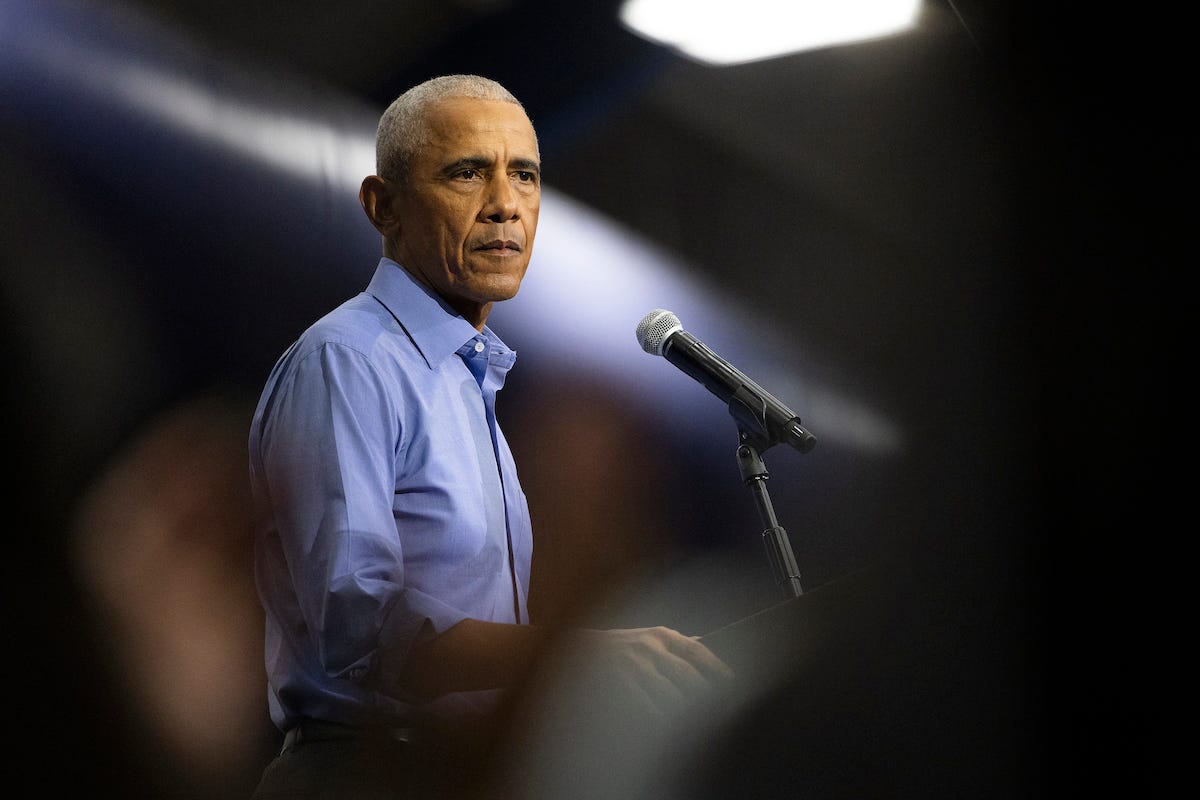"When Did That Become Okay?"
Barack Obama asks THE central question of the Trump era—one we should have been asking all along.
The political news media quickly moved on to more pressing questions like whether Kamala Harris has shown enough “urgency” to distinguish herself from Joe Biden, and how newsworthy it is that Donald Trump’s top military adviser calls him “fascist to the core” (zero mentions in the New York Times as of Sunday afternoon). But I’m still dwelling on the peroration of Barack Obama’s Thursday evening campaign speech, delivered in Pittsburgh, PA.
Please do watch the whole thing, but this is the key excerpt.
The beautiful town of Asheville, North Carolina, one of my favorite places in the country. Spent time there. Amazing people. Devastated. Hundreds of people killed. President Biden and Vice President Harris were down there meeting with local officials and comforting families, asking how they could help. Donald Trump at a rally just started making up stories about the Biden administration withholding aid from Republican areas and siphoning off aid to give to undocumented immigrants. Just made the stuff up. Everybody knew it wasn’t true. Even local Republicans said it was not true.
Now the people of Florida are dealing with another devastating storm, and I want you to watch what happens over the next few days, just like the last time. You’re going to have leaders who try to help, and then you have a guy who will just lie about it to score political points. This has consequences, because people are afraid, and they’ve lost everything, and now they’re trying to figure out, how do I apply for help? Some of them may be discouraged from getting the help they need. the idea of intentionally trying to deceive people in their most desperate and vulnerable moments. My question is: When did that become okay? I’m not looking for applause right now. I want to ask Republicans out there, people who are conservative, who didn’t vote for me, who didn’t agree with me. I had friends who disagreed with me on every issue. When did that become okay? Why would we go along with that?
If your coworkers acted like that, they wouldn’t be your coworkers very long. If you’re in business and somebody you’re doing business with just outright lies and manipulates you, you stop doing business with them. Even if you had a family member who acted like that, you might still love them, but you’d tell them you got a problem and you wouldn’t put them in charge of anything. And yet, when Donald Trump lies, cheats, or shows utter disregard for our Constitution, when he calls POWs “losers,” or fellow citizens “vermin,” people make excuses for it. They think it’s okay. They think, well, at least he’s owning the libs. He’s really sticking it to ‘em. It’s okay as long as our side wins.
It struck me, in one respect, on the level of raw text: a simple distillation of Trump’s degeneracy. But it lingered as something else: A view into a wrongly discarded mode of politics—one where the discrediting traits of villainous people form the basis of opposition to them.
We created in its place a whole pseudoscientific architecture to convince us that the last mile in any campaign is the most emotionally inert. Sweeping contests of values and appeals to patriotism, truth, fear, disgust, outrage are for consolidating the base, but persuading independents requires singing in a different, much more boring register. Antiseptic presentation. Policy details.
We can make numbers say that’s the right approach. But we can also use human intuition—both ours and theirs—to question the value of these kinds of data-cloaked incantations. We can look across the battle line to see what makes the opposition flinch. We can ask ourselves, “if this were a movie, which lines would make the audience say, ‘oooooh.’” After all, those are the ones we remember.
BACK TO NOT GOING BACK
A tiny number of unusually salient policy issues can accomplish that.





